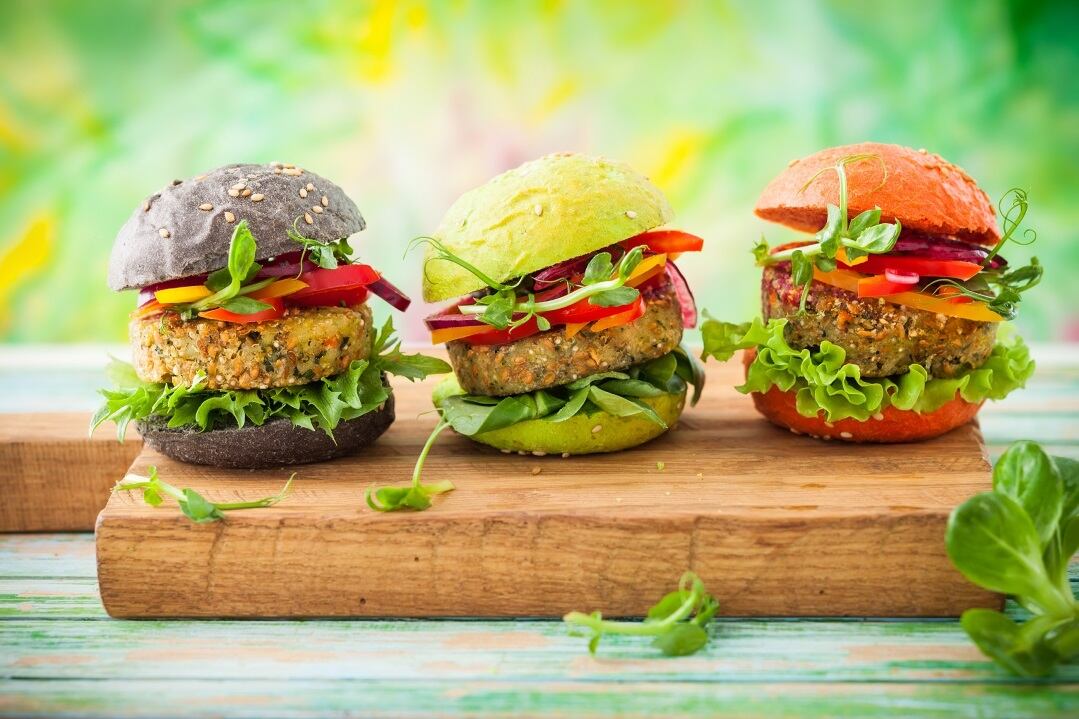The meat substitute market is expected to reach a global value of €6.8bn by 2025, with a compound annual growth rate forecast at 7.7%, according to Allied Market Research.
Major drivers supporting consumer interest in meat substitutes are the expectations that plant-based products are healthier and better for the environment. Meat analogues are particularly appealing to flexitarians, many of whom want to cut their meat intake without compromising on having a meat-like product centre plate.
However, barriers to uptake remain.
The challenge: Formulating clean label meat analogues
Taste, texture, stability and appearance are significant challenges for product developers working to formulate a ‘meaty’ product using plant-based protein sources. This leaves manufacturers struggling to meet the sensory expectations of consumers, who want meat analogues that are virtually indistinguishable from their animal-based counterparts.
In pursuit of the desired taste, texture or mouthfeel – or to help mask some of the undesirable traits associated with plant proteins - some meat analogue products add salts, fats or sugars to compensate.
Typically, the ingredients used in meat analogues also require high levels of processing. This can strip the products of taste and functionality. To achieve palate appeal, manufacturers are forced to tack on masking agents, flavour enhancers, fillers and highly processed ingredients, such as protein isolates.
In short, the meat analogue space is currently the battleground of a clash between two mega-trends shaping today’s food system: demand for plant based products and demand for clean labels.
While meat-free products have benefited from something of a ‘health halo’ in the past, this reputation is slipping as consumers come to demand cleaner labels and natural products and scrutiny of fat, salt and sugar content rises.
Enter Equinom: ‘We make processing nearly irrelevant’
“Unfortunately, despite the buzz, plant-based meat products don’t necessarily support clean-labelling," noted Itay Dana, marketing director for Equinom. “Natural products not only need to exclude additives and preservatives; they also must have short, simple ingredient lists.”
The Israeli start-up believes it has developed a solution.
The company has developed proprietary non-GMO seed breeding technology that, it said, gives manufacturers the opportunity to boost consumer adoption by branding their products with a cleaner label.
“Equinom’s seeds for plant ingredients make processing nearly irrelevant because Equinom’s whole beans deliver on taste and nutritional goals that are closer to producers’ needs,” Dana claimed.
“Equinom’s breeding technology grows better-for-you ingredients that do away with over-processing, simplify ingredient lists and eliminate the need for additives, so producers can go ‘from plant to product’ in fewer steps." - Itay Dana, Equinom
Delivering on taste and texture
According to Equinom’s assessment, the historical drive to maximise yield has come at the cost of other functional plant qualities, meaning taste texture and nutrition was sacrificed.
Equinon breeds ‘specifically for organoleptic properties’, custom-designing plant varieties that have ‘great taste, appealing texture and improved nutrition’, explained Sigal Meirovitch (PhD) head of Protein Development for Equinom.
“The company has restored these high-demand qualities naturally in the crops, demonstrating that one plant can have it all,” he said.
An in-depth understanding of the composition of plant lays behind Equinom’s innovation. “Equinom’s analysis includes deep understating not only regarding the levels of protein (and increasing it) but also the protein composition. Each protein in a plant is composed of a list of different types of proteins (sub-units).”
By analyzing these sub-units Equinom is able to alter various characteristics, Dana told FoodNavigator.
“Some sub-unit provide a texture with gelatine properties, some have good water solubility or thickening properties. The same goes for the oligosaccharides and sugar: the types of fibres, the different mono and di-saccharides and the starch (different type of starches and the balance between them). Each component that has any effect on texture (functionality) is relevant and we breed for it.”
Delivering supply chain win-wins
The seed start-up’s business model is to promote new seeds targeted at the food industry by engaging with both sides of the supply chain. “That is what makes Equinom different from other seed companies,” according to Dana.
Equinom’s customers are primarily food and ingredient companies and it counts industry heavy-weights such as Roquette, Strauss Group and Strauss and PepsiCo joint venture Sabra among its customers.

“These projects are unique for the industry because we give these companies access to breeding lines that includes dozens of variants that have an impact on their product. This helps them to better chose their optimum product,” Dana explained.
The company also works with grain suppliers such as Garcia Grain, pbAgrifood, Tekfen and AGT Foods.
This reflects Equinom’s dual aim to develop seeds that have the functional properties that food makers want and produce the yields that agricultural suppliers require. “To be able to promote varieties in the supply chain we need to develop seeds with great agri-tech results (yield, performance, etc.) together with great quality such as taste and functionally. And with each side to develop the adjust business model.”
Future food: Breeding for better nutrition?
Equinom currently breeds for higher protein content and improved functionality. Could the technology be used to deliver enhanced nutritional characteristics?
The company has done some work in this area. In particular, Equinom has looked at the amino-acid content of plant proteins as well as nutrients and other ‘health elements’ in the plant.
Dana revealed three crops - soybeans, peas and chickpeas – had a ‘good health score’, Dana told FoodNavigator. There were other legumes where the amino-acid profile ‘is not as full as we expected’. “By breeding and screening thousands of germplasm we can increase the amino-acid score by 10%,” she revealed.
However, work in this area is preliminary – not least because current market interest is not high, Dana noted. “We found a low interest from the industry for this kind of improvement. The goal for many companies is mainly taste and texture.”



